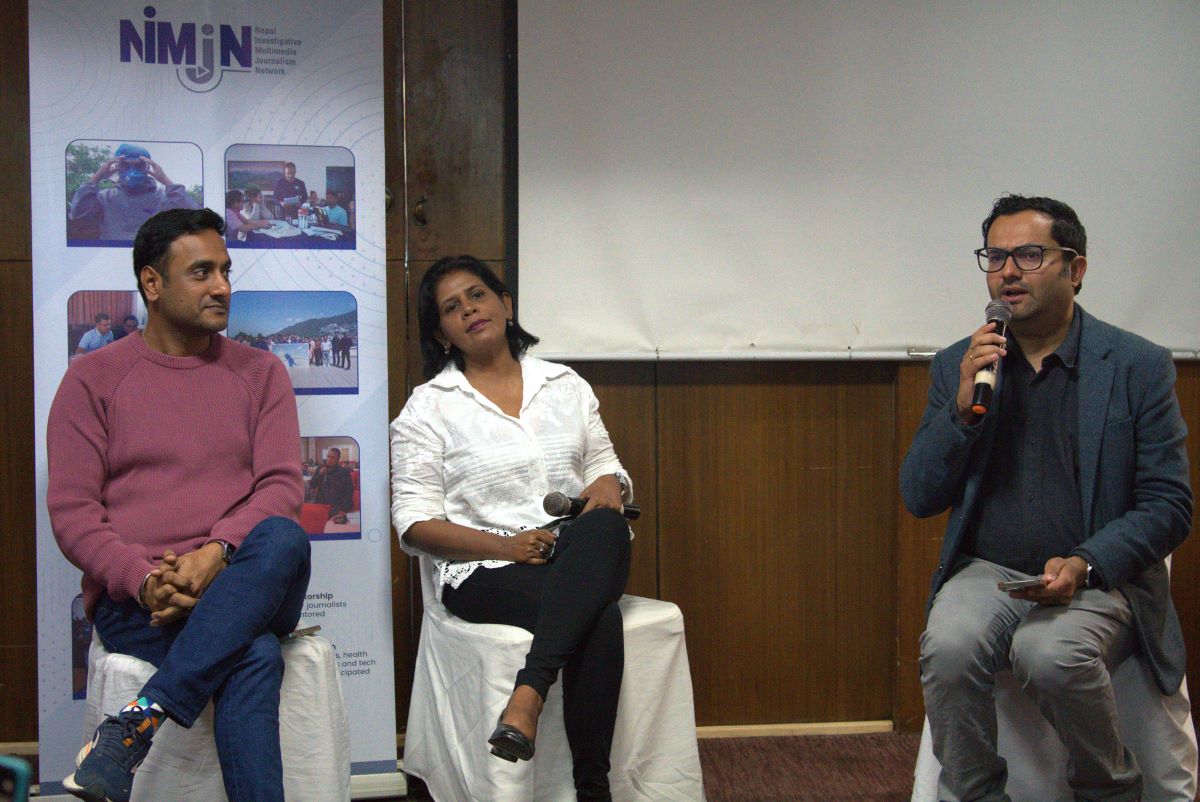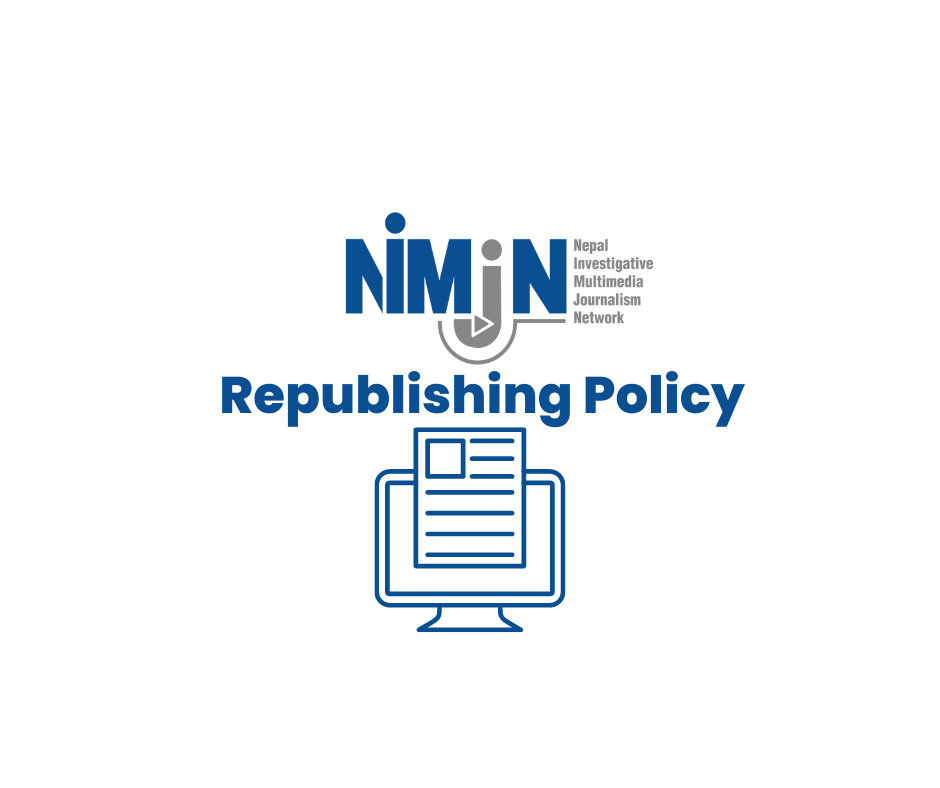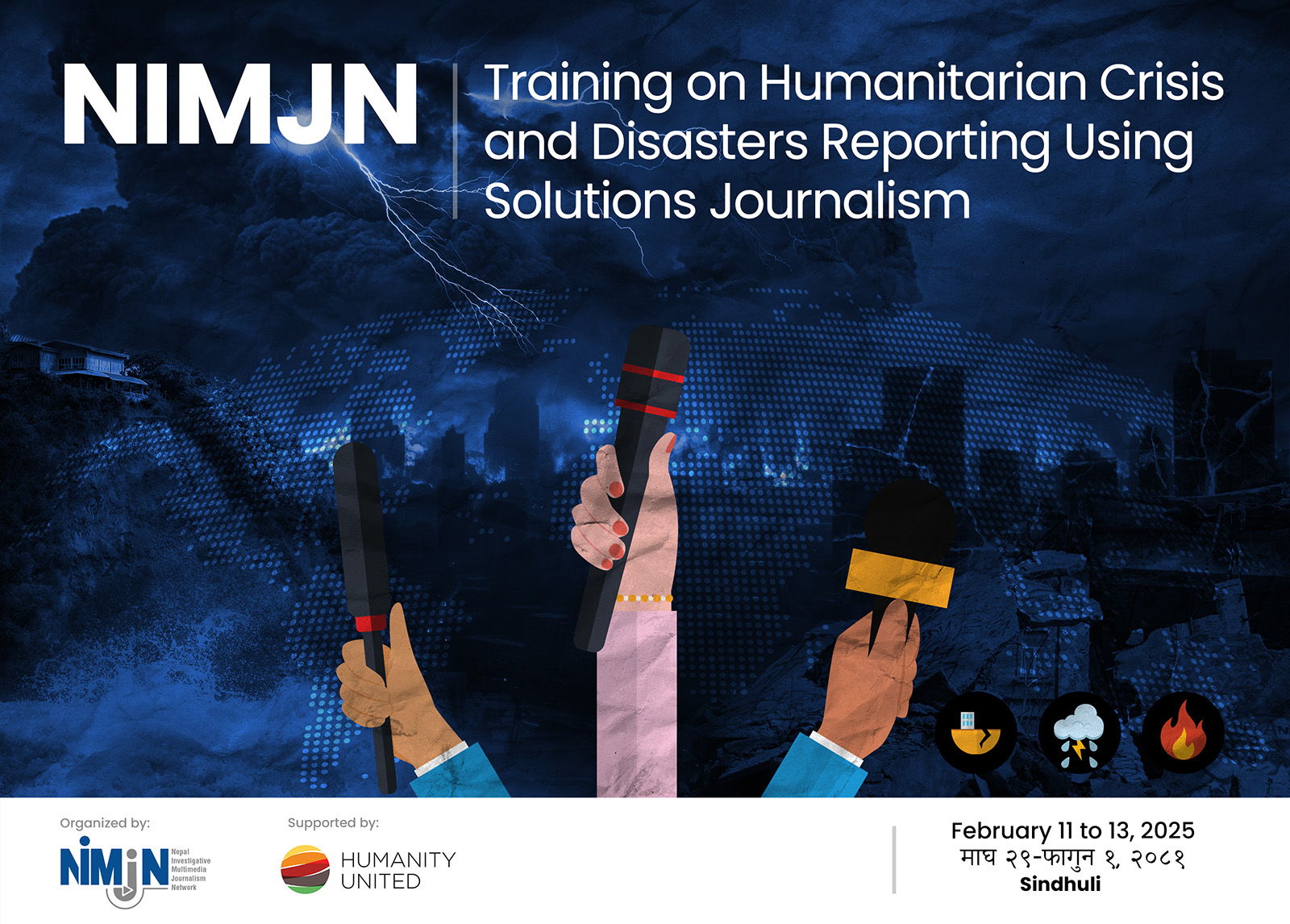Nepal climbed 30 steps up in this year’s press freedom ranking worldwide. Fewer incidents of press freedom violations were recorded last year as compared to the troubling years. Nepal is still going through a political transition. And there is more that Nepal needs to do to safeguard independent journalism and investigative reporting.
Nepal places 2nd in South Asia in the Press Freedom Ranking
The 2022 World Press Freedom Index from the Reporters Without Borders (RSF) ranked Nepal 76th among 180 countries. Nepal was ranked 106th last year. In this ranking, Nepal is doing better compared to its South Asian neighbors: Afghanistan is ranked 156th, Bangladesh 162nd, Bhutan 33rd, India 150th, Maldives 87th, Pakistan 157th, and Sri Lanka 146th.
However, press freedom violation incidents haven’t decreased in the country. The Federation of Nepali Journalists, a representative body of journalists in Nepal, reported there were 62 incidents of press freedom violations in 2021, an increase of 10 incidents from 2020. 52 incidents were reported in 2020.
In 2021, 32 incidents of threats and mistreatment of journalists, 10 incidents of professional insecurity, 10 cases of obstruction, five cases of encroachment, four incidents of arrests, and one incident of policy restriction were reported. 190 journalists were affected by these incidents.
Restriction on freedom
Although the constitution of the Federal Democratic Republic of Nepal guarantees “total freedom of the press” in its preamble, there are amendments and new laws related to communication being drafted in Nepal that will restrict media freedom. Four different bills, especially the Nepal Media Council Bill, the IT Bill, the Advertisement Regulation Bill, and the Public Service Broadcasting Bill, proposed by the government in Nepal in 2020 are still a great threat to Nepal’s investigative reporting.
These bills, if passed, will end the independence of the Press Council as the president will appoint all the members. And the government could ban any content on social media if it thinks it is against Nepal’s “national unity,” a term not clearly defined. If these bills are passed the state actors could easily criminalize journalism work if they don’t like the reporting. It can have a negative effect on Nepal’s journalism for a longer period of time.
The Criminal Code adopted in October 2017 restricts journalistic work and limits criticism of public figures. Part 3 of the Act—Offenses against Individual Privacy and Prestige—prohibits publishing private information, including of officials. Listening to or recording conversations and taking photographs require permits.
Many journalists in Nepal find the criminal code troubling as it limits their freedom. “They are finding loopholes to restrict journalists so that they can trouble journalists anytime,” said Sanjib Bagale, Chairman of Journalists’ Society for Parliamentary Affairs (JSPA). “In a sense, they want to create fear among journalists. They want to stop us from filming in public places without getting permission.”
Ongoing Challenges
Nepali journalism hasn’t been able to hold the bright and smart people in the industry for long. The pay for journalists is comparatively low, many journalists leave the profession after working for a few years. Many pick jobs at non-profits or international organizations. During the Covid-19 pandemic, many journalists lost their jobs, and many have reported situations when they were unpaid by media outlets. Journalists in Nepal also have to fight for their salaries and payments.
Another challenge alarming the Nepali journalism scene is the corporate capture of the Nepali media. Corporations and advertisers influence the content and sometimes frame news as well. “Press freedom is compromised by corporate interest in the media,” says Yubaraj Ghimire, media analyst and editor of Deshsanchar.com who has long worked in leadership positions in major news media in Nepal. It becomes difficult to do hard-hitting stories when companies start gatekeeping news and information. Because of these situations, many journalists I spoke to say they do self-censorship before filing the stories.
Another alarming situation in Nepal is the influence of politics on journalism. Nepal’s major political parties have formed sister organizations of journalists for years. Journalists working for these sister organizations are fundamentally working against the principle of journalism and ethics, and in the long run, it risks the credibility and independence of journalism. “Our biggest challenge is how to bring journalists and media out of party control and party affiliation,” Ghimire said.
Way Forward
If we aren’t able to stop this, investigative, critical, and independent journalism will be dead in Nepal in the coming years. These challenges would be difficult to deal with. Maybe we could deal with one challenge at a time.
In a country where politics rules over everything, it’s important that we institutionalize independent journalism and promote press freedom. So that independent media could hold the people in power accountable.
One thing that we need to talk a lot about is sustainability in journalism in Nepal. Freelancers and stringers are underpaid, and their work is not valued in the mediascape. Their work should be valued and media outlets in Nepal should support their work.
Media in Nepal once again need to work to regain the trust of its audience.
Overall, we need to promote more investigative multimedia reporting throughout the country, in all seven provinces. For that, we need to train more young journalists on the latest tools and techniques at the same time on journalistic ethics, credibility, trust, investigative reporting, and multimedia storytelling.
Originally published on https://n3con.com/magazine/archives/3244
Photo via Unsplash



